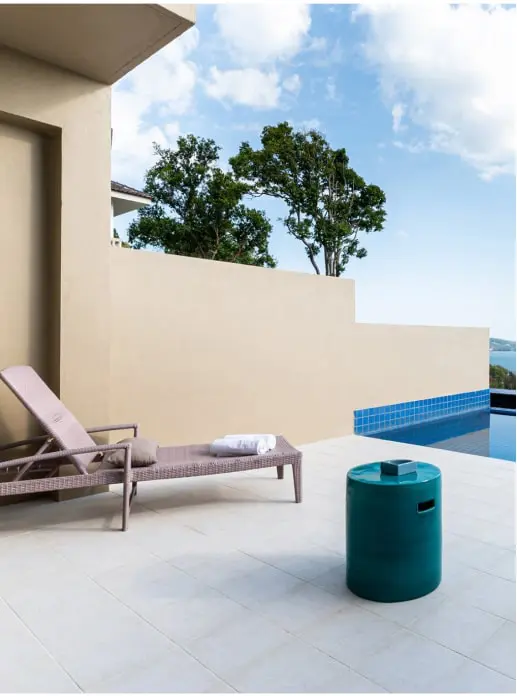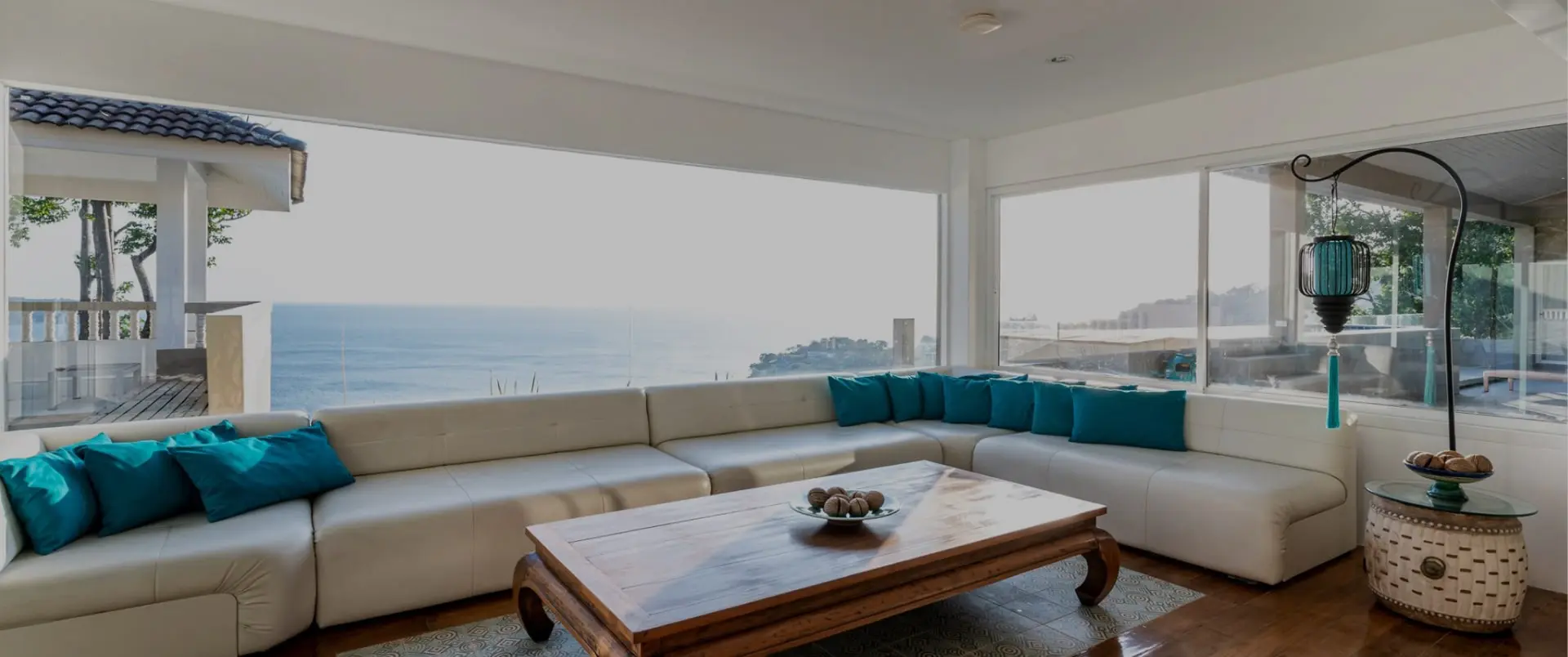
Welcome to The Diamond Rehab Thailand’s anorexia therapy program. We combine resort-style facilities with leading clinical expertise to deliver one of the most comprehensive anorexia treatment programs in Thailand.
Contact us today to learn more about the admissions process or read on to find out how our anorexia residential treatment program can help you develop healthier eating habits.

Anorexia nervosa, more commonly referred to simply as anorexia, is a serious eating disorder characterized by an abnormally low body weight due to self-imposed caloric intake restrictions.
People with anorexia try to stay as thin as possible and often have an intense fear of gaining weight, despite often being dangerously underweight. To maintain thinness and accelerate weight loss, anorexics may starve themselves, force themselves to vomit after eating, and misuse medication such as laxatives and diuretics.
Although people suffering from anorexia may have an unhealthy obsession with what they eat and their physical self-image, the underlying problem isn’t really about food. It’s a mental health issue – an unhealthy coping mechanism for dealing with stress and emotional difficulties. Without an effective treatment plan, anorexia can have a severe impact on a person’s physical and psychological well-being. While young women are disproportionately affected, it is important to remember that anyone of any age, gender, or cultural background can potentially develop anorexia.

Effective treatment of anorexia nervosa involves healing both the mind and the body. At our residential treatment center, we take a holistic approach to therapy, which aims to address the underlying factors surrounding your eating disorder. Using a combination of medical care, cognitive behavioral therapy, and wellness practices, our anorexia therapy team will work with you to help you overcome the physical symptoms and emotional trauma associated with anorexia.
Your well-being is at the heart of everything we do. We’ll provide you with the highest level of medical assistance and personal care throughout your stay at our luxury rehab for anorexia, ensuring you have all the support you need to make a full recovery.
A person suffering from anorexia nervosa may exhibit a range of physical and psychological symptoms. You may wish to consider seeking treatment for anorexia nervosa if you notice any of the following signs:
The high cost of anorexia nervosa treatment centers in Western nations often deters people from seeking the professional help they truly need. Many people attempt self-treatment or outpatient therapy, which are simply not as effective as inpatient treatment methods.
The low cost of living in Thailand allows us to offer one of the most cost-effective anorexia residential treatment programs in the world. Our treatment center for anorexia offers resort-style accommodation, fully equipped medical facilities, and a highly qualified clinical team committed to your recovery – all at a fraction of the cost of Western anorexia rehab centers.
For more information about our anorexia nervosa treatment fees, please contact our administration team today.

With a full suite of medical services, luxury accommodation options, and a supportive community of licensed healers, The Diamond Rehab Thailand is an excellent option for anyone looking for the best anorexia treatment centers in Thailand.
Drawing on extensive experience in the field of rehabilitation for anorexia, we’ll guide you through a tailor-made treatment plan as you develop the skill you need to achieve long-lasting wellness. You’ll graduate from our anorexia program feeling strong, healthy, and empowered to take ownership of your eating habits in the years ahead.
Speak with one of our eating disorder experts today to discuss treatment options and find out if our rehab for anorexia nervosa is right for you.
Research suggests that about 46 percent of people with anorexia make a full recovery and an additional 33 percent make a partial recovery. The sooner a person gets treatment for anorexia nervosa, the more likely it is they are to make a full recovery, so it is important to seek help as early as possible. Anorexia residential treatment is generally regarded as more effective than outpatient therapy.
Yes. Anorexia can cause severe body image distortion and dramatically impact the way you think and feel about the world around you. As a result, it can be very difficult to accurately self-diagnose anorexia. Generally speaking, if you have a chronic fear of gaining weight and/or engage in unhealthy behaviour to lose weight, you may have anorexia. For a formal diagnosis, please see a registered dietitian or other licensed professional.
Refeeding syndrome is a potentially fatal condition that can occur when someone who is malnourished begins to eat again and metabolize calories. Common symptoms of refeeding syndrome include:
Symptoms typically develop within a few days of starting to eat again, although some people do not show any symptoms.
Doctors use a combination of physical and psychological evaluations to diagnose anorexia. Your doctor may assess your medical history, perform a physical examination and ask about your eating habits. To be diagnosed with anorexia nervosa, a person must meet the following criteria:
Atypical anorexia nervosa is a serious eating disorder that shares almost all of the features of anorexia nervosa. The only difference is that people with atypical anorexia nervosa are not underweight – their body weight falls within or above what is considered the “normal” range. Atypical anorexia nervosa can cause serious malnutrition and may progress into anorexia nervosa if the individual becomes underweight.
The safest way to start eating again is to follow a meal plan tailored to your nutritional needs. Your meals should include a variety of nourishing foods that provide adequate servings of both macronutrients and micronutrients. Avoid skipping meals, stick to healthy foods you enjoy, and consider having a number of small meals throughout the day if you don’t like the idea of having three large meals. Most importantly, please consult a registered dietitian if you’re unsure of how to design a balanced meal plan.
Everything you want know
If you are interested to come to The Diamond, please fill in the admission form and we will contact you ASAP. You can also call us on +66 (0) 98 721 85 87
The process may differ, as programs are customised based on what the patient needs as well as the severity of the addiction or mental illness, but the goal of rehabilitation is always to ensure the individual’s well-being. Most treatment programs include: evaluation, detox or the clearing of alcohol and other drugs out of your system, psychological treatments, education sessions, and supportive services. When you transition into outpatient therapy, you may still have one-on-one or group therapy sessions and to some patients, these may last for the rest of their lives.
At The Diamond, we manage to create a well-balanced program. In the morning you can do exercise before breakfast. After breakfast, we will have two group sessions. After lunch, we will have our third group session of the day. You will miss some group sessions if you have a 1 on 1 session scheduled planned for the day. In the afternoon we go for a walk or do meditation at the beach. In the evening there is a non-compulsory entertainment schedule.
Our cooks are trained to serve everyone’s needs. If you have any allergies the cooks will prepare special meals made for you.
Aftercare is essential, and therefore we offer two ways to do aftercare. Option one would be that you have weekly zoom meetings with your focal counsellor, who also treated you while at our centre. Option two is that we bring you in contact with one of our aftercare partners around the world, depending on where you live.
Yes, you are. However, we strongly suggest that you stay for the days you signed up for, if you finish treatment the chances of success in the future will grow hugely.

Schedule free assessment
Concerned about yourself or your loved one?
Schedule a free assessment with our experts.